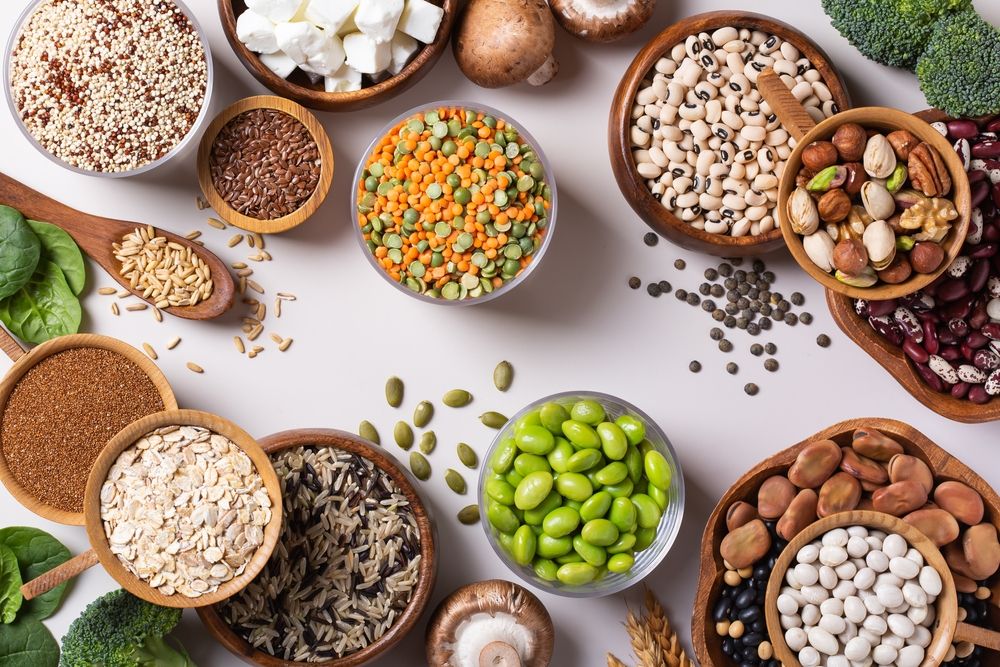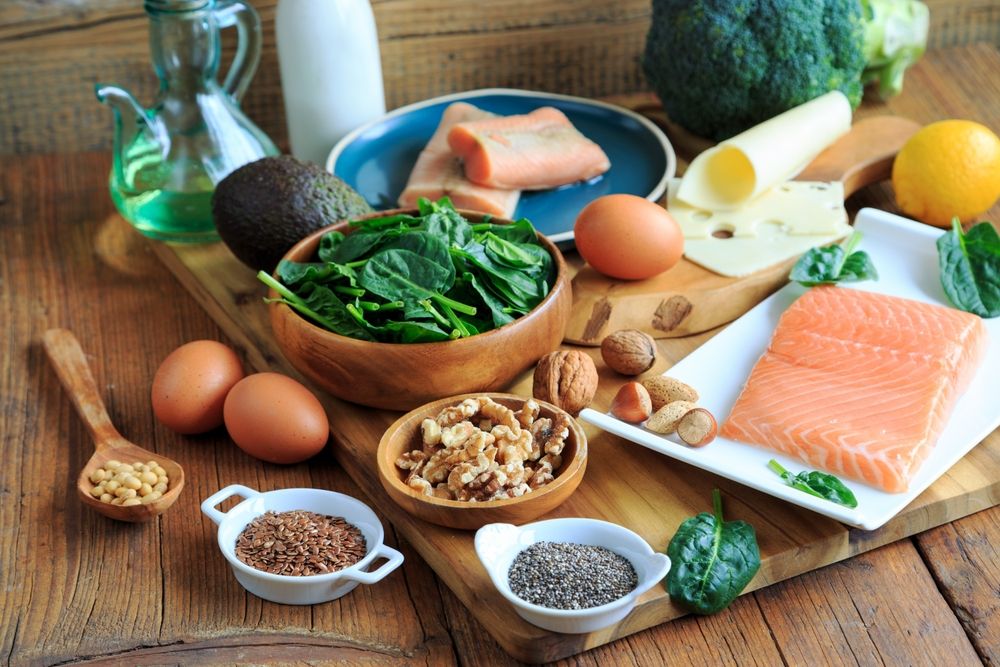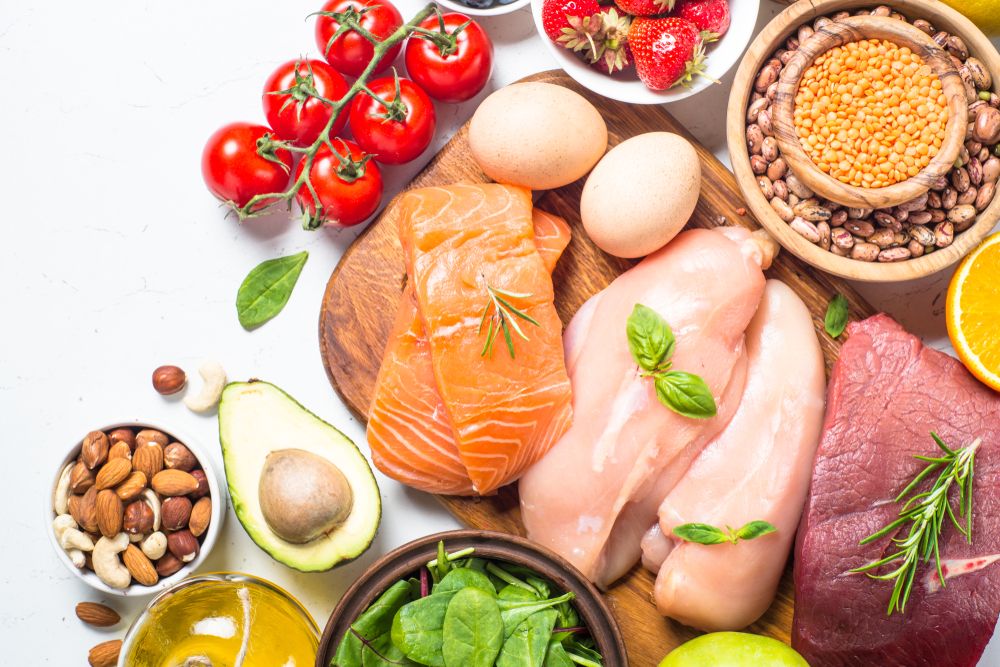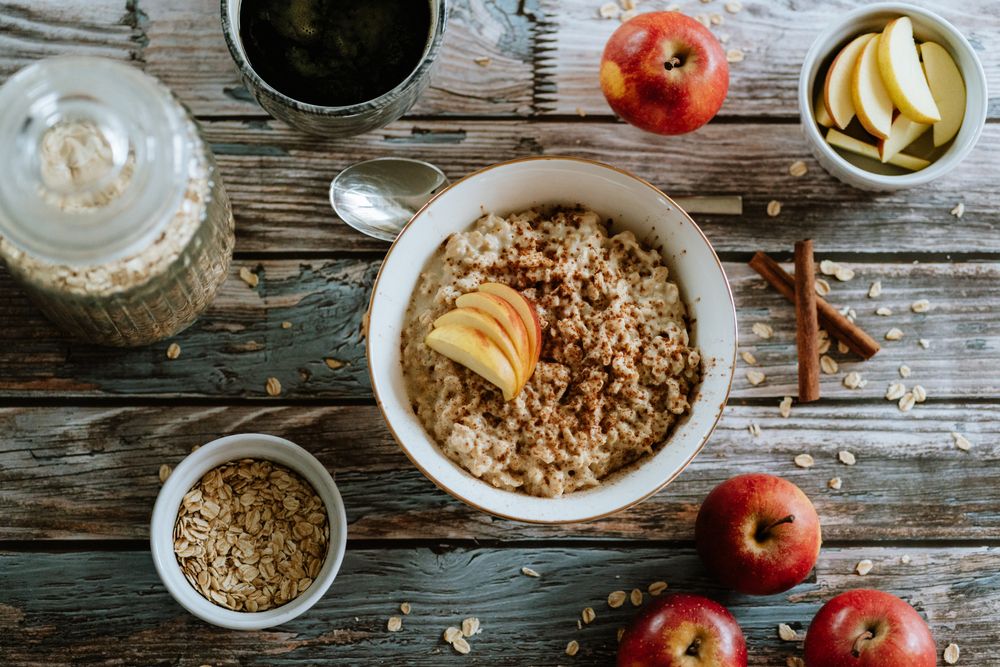
Whether you’ve just turned 60 or have been navigating this decade for a while, you’ve likely noticed your body undergoing significant changes. As these shifts occur, it’s more important than ever to prioritize healthy habits with both food and exercise. While adopting positive routines can support your health goals, certain eating habits can work against you as you age. To help you steer clear of these pitfalls, we consulted expert dietitians to uncover the eating habits you should avoid in your 60s.
Not Eating Enough Prebiotics

"Prebiotics are the nutrients that feed your gut bacteria, playing a vital role in maintaining gut health and supporting hormone balance as you move into this stage of life," explains Kara Landau, RD, and founder of The Prebiotic Dietitian. "With age, gut diversity naturally declines, which can negatively affect various aspects of health, including hormones that regulate satiety and weight management, overall metabolic health, and more. Incorporating prebiotic-rich foods into your diet—such as onions, garlic, cooked and cooled potatoes and rice, jicama, uncooked oats, legumes, lentils, cashews, and pistachios—helps nourish your gut bacteria, promoting a thriving microbiome and delivering lasting health benefits."
Eating Too Many Sugary Foods

"It might seem obvious to reduce sugar-rich foods in your diet, but sugar often sneaks in more than you realize," says Kara Landau, RD. "From added sugars in ready-made sauces and dressings to sweetened packaged breads, the sources of hidden sugar are nearly endless. To avoid these sneaky sugars, always check the ingredient list on packaged foods before purchasing, and steer clear of items where sugar (or its equivalents) appear among the first few ingredients."
Not Getting Enough Heart-Protective Omega 3's or Plant Sterols in Your Diet

"Rather than only focusing on what to eliminate from your diet, it's essential to prioritize nutrients that support optimal organ function," says Kara Landau, RD. "As hormone levels shift and may no longer provide the cardio-protective effects they once did, incorporating more omega-3 fatty acids becomes crucial. Additionally, for those noticing a gradual rise in cholesterol levels, foods enriched with plant sterols can help. Wild-caught oily fish, algae-based foods, and plant-based options like hemp seeds, walnuts, and flaxseeds are excellent sources of omega-3s. Fortified products with added omega-3s or plant sterols can also support healthy cholesterol levels over time."
Not Eating Enough Protein

Getting enough protein is vital at any age, as it "helps maintain muscle mass, strength, bone health, and supports weight loss efforts," says Courtney D'Angelo, MS, RD, and author at GoWellness.
As you age, however, protein becomes even more critical for your overall health. "People over 60 are at a higher risk of losing muscle mass, and not consuming enough protein throughout the day can accelerate this process," D'Angelo explains.
She recommends including protein-rich foods like eggs, salmon, grass-fed beef, chicken, or turkey in your meals whenever possible. "You can also start your day with a healthy habit by adding whey protein to your coffee or oatmeal, ensuring you kick off the morning on a strong note."
Not Drinking Enough Water

Another habit to avoid in your 60s is not drinking enough water and becoming dehydrated. "As you age, your sense of thirst naturally diminishes," explains Lisa Young, PhD, RDN, author of Finally Full, Finally Slim and member of our medical expert board. "This makes people in their 60s more prone to dehydration compared to younger individuals."
Eating Late at Night

Many people don’t realize that eating late at night can negatively impact your health—even if you’re choosing healthier options!
"Late-night eating often coincides with consuming ultra-processed junk food, which is especially concerning," warns Lisa Young, PhD, RDN. "Overeating at night has been linked to weight gain, blood sugar fluctuations, and an increased risk of diabetes, particularly in those who are already more vulnerable."
A Low-Fiber Diet

One of the most detrimental eating habits is not consuming enough fiber, a nutrient essential for maintaining a healthy and balanced life.
"Be sure to include insoluble fiber to support regular digestion, and soluble fiber to nourish the beneficial bacteria in your gut," explains Kara Landau, RD. "This helps improve nutrient absorption, reduce inflammation, and even enhance your mood."
To boost your fiber intake, try adding foods like berries, oatmeal, apples, beans, or chickpeas to your daily meals.

